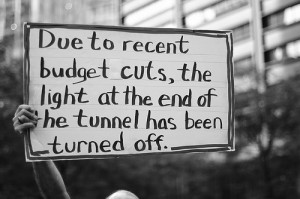 Why is it so hard to convince policy makers worldwide to address the social determinants of health, including poverty, hunger, and income inequality? Judging by the excerpt below, we shouldn’t count on the US to champion this cause any time soon. It’s from a document called “The Future We Want,” issued by the Rio+20 conference last June. The US requested changes to the document, indicated in bold (additions) and strike-outs (deletions).
Why is it so hard to convince policy makers worldwide to address the social determinants of health, including poverty, hunger, and income inequality? Judging by the excerpt below, we shouldn’t count on the US to champion this cause any time soon. It’s from a document called “The Future We Want,” issued by the Rio+20 conference last June. The US requested changes to the document, indicated in bold (additions) and strike-outs (deletions).
Eradicating poverty is the greatest global challenge facing the world today and an indispensable requirement for sustainable development. In this regard we are committed to free humanity from extreme poverty and hunger as a matter of urgency.
We recognize that promoting
universalaccess to social services can make an important contribution to consolidating and achieving development gains.We strongly encourage initiatives
at all levelsaimed atprovidingenhancing social protection for all people.We
appeal toinvite all States, relevant international organizations, the private sector, and all major groups to enhance their efforts to achieve sustainable changes in consumption and production patterns while creating new economic opportunities and decent work, andsecuring goodenhancing living standardsand protection of vulnerable groups.
We reaffirm the urgent need to deepen the reform of the global financial system and architecture based on the principles of equity, sovereign equality, independence, common interest, cooperation and solidarity among all States.
We urge developed countries to undertake significant changes in the lifestyles of their people to move towards a more sustainable future for all.
Heaven forbid we should ask Americans to make changes to their lifestyles. Why, that’s almost as bad as believing in redistribution.
I found this excerpt at Harpers (behind a paywall), where it was cleverly titled “Brazil Nots.”


Sorry, comments are closed for this post.